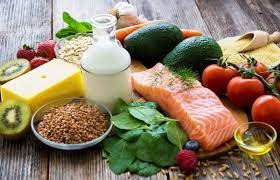How can one get protein from nutrition, and why is it vital for the body?
One essential macronutrient that is essential to the maintenance and support of many bodily processes is protein. Protein is sometimes referred to as the “building block of life,” and this article will explore its importance as well as useful strategies for include it in your regular meals.
Recognizing Protein’s Function
The body’s workhorses, proteins perform a number of vital tasks, including:
1. Building and Repairing Muscle
Proteins as Sources of Muscle: The formation and repair of muscles is one of the most well-known uses for proteins. Our body’s muscles are like engines, and the fuel that keeps them operating at peak performance is proteins. Protein is necessary for muscle development and recuperation, regardless of whether you’re an athlete trying to add bulk or a layoffee. What Part Amino Acids Play: The amino acid content of protein is crucial to its capacity to grow muscle. These are the fundamental components of proteins, and different amino acids have varying roles in the production of muscle proteins. They are necessary for many biological processes. Ideal Protein Consumption: The recommended daily intake of protein varies depending on age, sex, degree of exercise, and general health. For adults, 0.8 grams of protein per kilogram of body weight is a reasonable recommendation. Nevertheless, this requirement—which ranges from 1.2 to 2.2 grams of protein per kilogram of body weight—can be much greater for physically active people.
2. Enzyme Manufacturing
The Function of Enzymes: Enzymes are biochemical catalysts that aid in a variety of bodily chemical processes. They are in charge of dissolving food, removing nutrients, and turning those nutrients into energy. Our metabolic and digestive processes would be slow and ineffective without enzymes. As Enzymes, Proteins Enzymes are composed mostly of proteins. Specialized proteins called enzymes function as biological catalysts to quicken chemical processes without consuming themselves in the process. Every enzyme plays a distinct job in maintaining the proper operation of the organism.
3. Help for the Immune System
The Guardians of the Immune System: Your body’s protection against infections, viruses, and other dangerous invaders is your immune system. Proteins are essential for bolstering this defensive mechanism because they facilitate the synthesis of antibodies. Proteins and Antibodies: When foreign substances enter the body, the immune system reacts by producing antibodies, which are proteins. By binding to and neutralizing infections, these antibodies stop them from doing damage. As a result, proteins help to protect our bodies from illnesses and infections.
4. Health of Hair, Skin, and Nails
The Significance of Collagen: Collagen is a structural protein that keeps your skin, hair, and nails supple and healthy. It gives these buildings their basis and keeps them fresh and lively. The Role of Protein in Collagen: Amino acids, which are produced from protein, make up the majority of collagen. Making sure your diet has enough protein helps your body produce collagen, which in turn encourages strong, glossy hair, skin that glows, and nails that are strong.
Sources of Protein in Your Diet
You must include foods high in protein in your regular meals if you want to fully benefit from protein. These are a few top-notch sources:
1) Trim Meats
Animal-Based Protein: Lean meats are a great source of animal-based protein. Examples of such foods are chicken, turkey, and lean beef cuts. They are a popular option for those looking for high-quality protein since they are low in fat and high in key amino acids. Amino Acid Profiles: These meats have a well-balanced amino acid composition that gives your body all the key amino acids it needs to build muscle and maintain general health.
Preparation Advice: To reduce additional fats while cooking lean meats, it’s best to use techniques like grilling, baking, or broiling.
2. Shellfish and Fish
Marine Protein Powerhouses: Fish, particularly fatty fish like mackerel, salmon, and tuna, are excellent sources of heart-healthy omega-3 fatty acids in addition to high-quality protein. Other health advantages of these fatty acids include their ability to lower inflammation and promote cardiovascular health. Omega-3 Fatty Acids: These vital fats lower the risk of heart disease, enhance general health, and are crucial for the function of the brain.
Diverse Seafood: Eating a selection of seafood guarantees that you are getting a wide array of nutrients and protein sources.
3. Grats
The Adaptable Egg: Packed with all nine essential amino acids, eggs are a nutritional powerhouse and a flexible source of protein. They may be cooked to your preference in a variety of ways, such as poached or scrambled. Protein and Nutrients: Eggs are packed with of vital nutrients, such as vitamins, minerals, and good fats, in addition to protein. For many, they provide a simple and affordable source of protein.
4. Milk-Based Goods
The nutritional value of dairy products is high in protein, especially the premium casein and whey proteins found in milk, yogurt, and cheese. They also include a healthy dosage of calcium, which supports healthy bones and general wellbeing.
Calcium and Protein Synergy: Dairy products’ combination of calcium and protein is good for bone health. It makes sure that the body absorbs calcium effectively, which strengthens bones even more. Selecting Dairy Sensibly: Choose dairy products that are low in fat or fat free to minimize your consumption of saturated fat while still getting the benefits of the protein and calcium.
5. Protein from Plants
Plant Power: Plant-based protein sources such as quinoa, lentils, beans, and tofu are great options for vegetarians and vegans. These sources are rich in fiber, vitamins, and minerals in addition to protein. Nutrient Balancing: Plant-based diets may be very nutrient-dense, but to receive all the important amino acids and other nutrients you need, you must make sure you eat a mix of plant proteins.
The benefits of dietary fiber, which promotes fullness and facilitates digestion, are often associated with plant-based proteins.
6. Seeds and Nuts
Nutritious Nuts and Seeds: Rich in protein, healthy fats, and a delightful crunch, almonds, peanuts, chia seeds, and pumpkin seeds are all nutritious choices. These snacks may be an easy way to get energy and protein.
Good Fats: Mono- and polyunsaturated fats, which are found in nuts and seeds, are heart-healthy and provide a consistent source of energy.
Although nuts and seeds have many health advantages, it’s crucial to watch portion sizes since they may be high in calories.
Required Proteins
Your body may need different amounts of protein based on your age, sex, activity level, and general health. For adults, however, 0.8 grams of protein per kilogram of body weight is a standard recommendation.
1. People in Motion
Protein for the Active: To promote muscle development and repair, those who are physically active or athletes may need to consume more protein. In these situations, try to consume 1.2 to 2.2 grams of protein per kilogram of body weight in order to keep up with the higher demands on your muscles.
Post-exercise Protein: Consuming protein after an exercise is very advantageous for the development and repair of muscles. Eggs, lean meats, and protein drinks may all be healthy post-workout options.
2. Senior Citizens
Protein and Aging: As we become older, our bodies may need more protein to maintain healthy muscle mass. To counter age-related muscle loss, older persons should concentrate on eating meals high in protein.
Protein and Bone Health: Sustaining bone density and lowering the risk of fractures in the elderly depend on an adequate protein consumption.
Advice on Consuming Protein in Moderation
Take into account these suggestions to make sure you’re getting the most out of your protein intake:
1. Variable Sources of Protein
Mixture Is Vital: To vary the types of nutrients you consume, include both plant- and animal-based proteins in your diet. This provides a variety of different nutrients and tastes in addition to guaranteeing that you get all the important amino acids.
Meatless Mondays: To broaden your horizons and find new sources of protein, think about setting aside one day of the week for plant-based meals.
2. Control of Portion
Mindful Eating: To prevent consuming too many calories, pay attention to portion sizes. It’s simple to eat too much protein, particularly when it comes to bigger portions of meat or high-protein snacks.
Plating Arrangement: Distribute your protein among a variety of fruits, veggies, and whole grains. This guarantees a complete meal that satisfies all of your dietary requirements.
3. Time Is Everything
Protein All Day: Distribute your daily dose of protein throughout the day. Every meal should include protein to maintain satiety and muscle maintenance. A healthy distribution of protein promotes muscle development and helps you keep your energy levels constant.
Avoid skipping breakfast in favor of protein, which will keep you full and attentive throughout morning.
4. Hold On to Water
Hydration and Protein Metabolism: Sufficient hydration is necessary for protein metabolism. To support these functions, make sure you’re getting enough water. Dehydration may interfere with the absorption and usage of proteins.
Balanced Hydration: Try to consume eight glasses of water or more each day, and modify your amount according to the weather and your degree of activity. A healthy diet must include protein since it has so many health advantages for your body. You may maintain a balanced, healthful diet that promotes muscular development, general well-being, and vitality by include different sources of protein in your meals and being mindful of your specific requirements.







